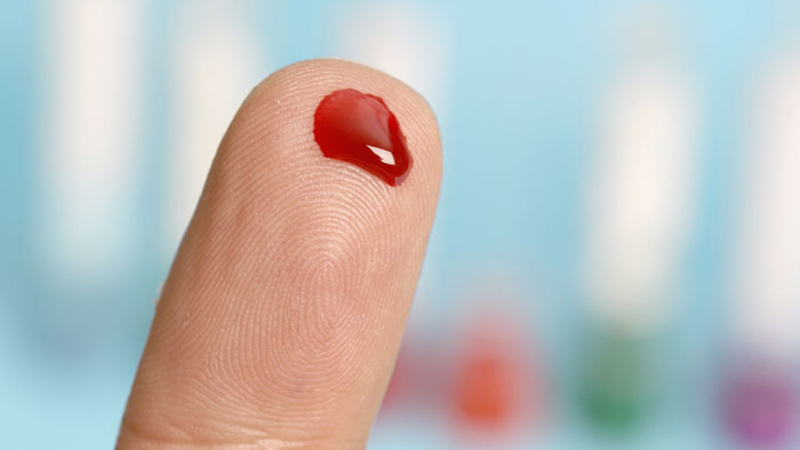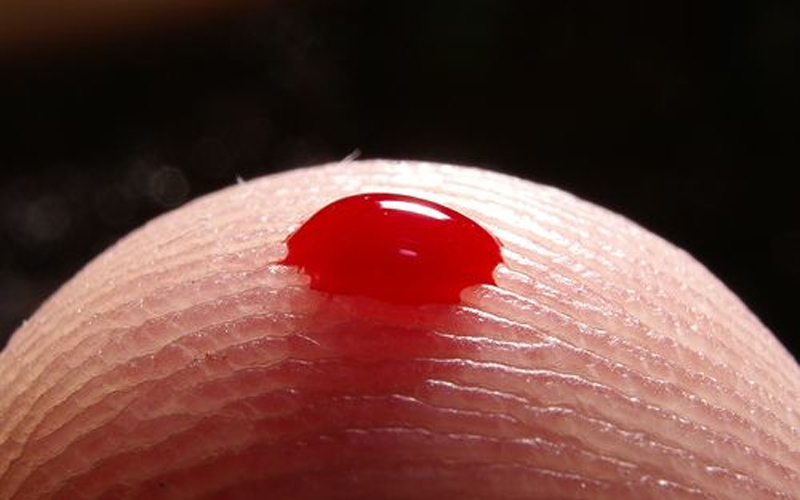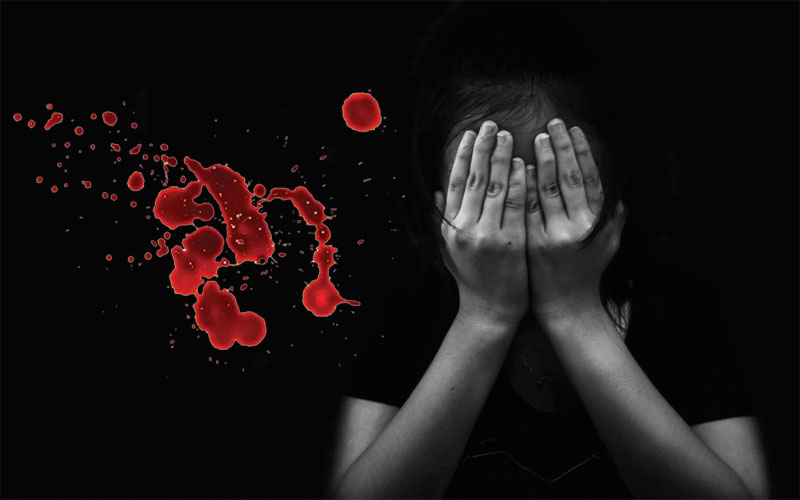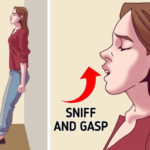The sight of blood can trigger a condition known as blood-injury phobia or blood phobia, leading to fainting spells. But what exactly is this fear of blood?
1 Blood Phobia
Blood phobia falls under the category of obsessive-compulsive or anxiety disorders. Unlike other phobias, seeing blood can cause a sudden increase in heart rate, followed by a rapid decrease.
A sudden drop in blood pressure can disrupt blood flow, leading to nausea, cold sweats, and fainting spells.
 Blood Phobia
Blood Phobia
This phobia is linked to the vagus nerve, which connects to a part of the brain called the nucleus tractus solitarius (NTS).
For those with blood phobia, the sight of blood causes the NTS to rapidly switch between stress and calm responses, leading to nervous system disruption and temporary loss of consciousness through fainting.
2 Causes of Blood Phobia
 Multiple factors contribute to blood phobia.
Multiple factors contribute to blood phobia.
Medical-related fears are often the root cause of blood phobia, as they associate blood with injections, injuries, or even death due to accidents or other causes.
- Fear of death (Thanatophobia) is strongly linked to blood phobia, as people often associate blood loss with mortality.
- Mysophobia, or fear of germs, can also trigger blood phobia, as individuals fear being contaminated by another person’s blood.
- Blood phobia can also stem from negative experiences or psychological and physical trauma associated with blood during childhood.
Graphic media depictions of murder scenes or serial killers can also contribute to blood-related phobias for some individuals.
Additionally, as blood is often a sign of illness or injury, nosophobias, or the fear of contracting a disease, can be linked to blood phobia.
Genetic factors also play a role in blood phobia.
3 Methods to Overcome Blood Phobia
Apply Pressure
 Tense your arm, leg, and body muscles for 10-15 seconds to increase blood pressure.
Tense your arm, leg, and body muscles for 10-15 seconds to increase blood pressure.
As a sudden drop in blood pressure is the primary cause of fainting, applying pressure is a simple yet effective countermeasure. This technique tenses the muscles, increasing blood pressure and preventing fainting.
Tense your arm, leg, and body muscles for 10-15 seconds to raise blood pressure. Alternatively, engage in high-intensity sports like weightlifting or running. Once comfortable, gradually expose yourself to blood-related scenarios under the guidance of a therapist.
Desensitize Yourself
 Face your fear of blood directly.
Face your fear of blood directly.
This method involves directly facing your fear of blood. Prepare yourself mentally to come into contact with blood. Start with distant and brief exposures, gradually increasing the proximity and duration.
Instead of feeling disgusted or avoiding blood, associate it with physical pain. The goal is to overwrite negative memories and thoughts associated with blood.
Cognitive-Behavioral Therapy
 Cognitive-Behavioral Therapy
Cognitive-Behavioral Therapy
This approach involves using logic and self-discipline to overcome your fear. Replace negative thoughts with positive ones to cultivate a happier and more optimistic mindset.
Not all bleeding leads to death or infectious diseases. Remind yourself that wounds can heal, and blood loss can be controlled with determination, rather than letting fear control you.
Consult a Doctor or Psychologist
 Doctors and psychologists have the expertise to help you overcome blood phobia.
Doctors and psychologists have the expertise to help you overcome blood phobia.
Doctors and psychologists are knowledgeable and experienced in treating psychological conditions. They can provide counseling sessions where you can openly discuss your fears, traumatic memories, and any other concerns.
These professionals will offer guidance and a treatment plan to help you heal from psychological wounds, overcome your fear, and rediscover your true self.
 Doctors and psychologists can provide treatment plans to aid your recovery.
Doctors and psychologists can provide treatment plans to aid your recovery.
According to Wikipedia, only 3 out of 100 people suffer from blood phobia, and the likelihood of developing this condition is even lower.
By educating yourself and implementing the strategies outlined above, you can prevent and overcome this fear of the red liquid and avoid fainting spells triggered by the sight of blood.
You may also like:































